In recent years, artificial intelligence (AI) has revolutionized various industries, and Hollywood is no exception. From scriptwriting and casting to visual effects and marketing, AI is redefining how movies are made, distributed, and consumed. This technological evolution not only streamlines traditional processes but also pushes the boundaries of creativity, enabling filmmakers to achieve the previously unimaginable. Here, we delve into the transformative impact of AI on filmmaking and how it’s reshaping Hollywood’s landscape.
AI in Pre-Production: Enhancing Scriptwriting and Storytelling
AI-powered tools are making their mark in the early stages of filmmaking, particularly in scriptwriting. Software like ScriptBook and Sudowrite can analyze existing scripts, generate new ideas, and even predict a screenplay’s potential success by evaluating its structure, character development, and emotional appeal. These tools enable writers to identify weak points and refine their stories before production begins.
AI can also assist with generating storyboards. Platforms such as Storyboarder use machine learning algorithms to create visual representations of scenes based on textual descriptions. This significantly reduces the time and effort required in the pre-production phase, allowing directors to visualize their concepts more effectively.
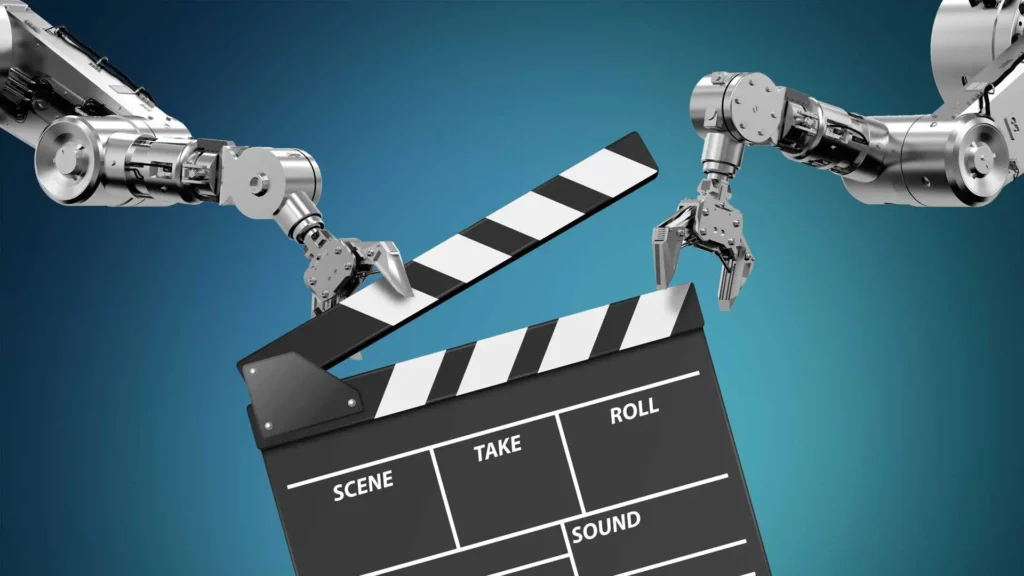
Epic Fantasy Adventures to Look Out for in 2025-2026!
Casting and Character Creation
Casting directors are leveraging AI to match actors with roles more efficiently. AI algorithms can analyze vast databases of actors’ profiles, considering factors such as physical attributes, acting style, and past performances. This data-driven approach not only accelerates the casting process but also increases the likelihood of finding the perfect fit for a role.
In animated and CGI-heavy films, AI is being used to create realistic digital characters. Tools like DeepMotion and Unreal Engine’s Metahuman Creator enable filmmakers to design lifelike characters with intricate details. AI-driven motion capture technology further enhances realism by accurately translating human movements onto digital avatars.
Revolutionizing Visual Effects and Post-Production
Visual effects (VFX) have been a cornerstone of modern filmmaking, and AI is taking this field to new heights. AI-powered software can automate time-consuming tasks such as rotoscoping, compositing, and color grading. For instance, Adobe’s Sensei and Blackmagic Design’s DaVinci Resolve utilize machine learning to achieve seamless VFX integration and enhance image quality.
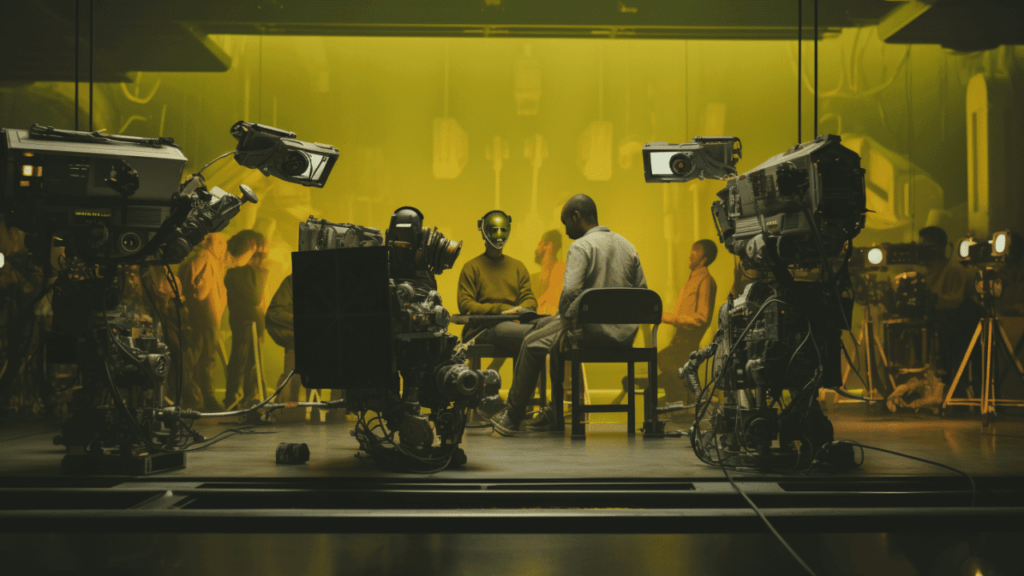
AI also plays a pivotal role in de-aging actors and creating hyper-realistic CGI. Recent blockbusters have demonstrated how machine learning algorithms can convincingly rejuvenate actors or bring deceased stars back to life on screen, as seen in movies like The Irishman and Rogue One: A Star Wars Story.
Optimizing Production Workflow
AI is streamlining production workflows by automating mundane tasks and improving efficiency. Scheduling tools powered by AI, such as StudioBinder and MovieMagic, help production teams manage shooting schedules, budgets, and resources. By analyzing historical data and current trends, these tools can predict potential bottlenecks and suggest solutions, ensuring a smoother production process.
Drones equipped with AI are also transforming on-set filming. These drones can autonomously capture dynamic aerial shots, track actors, and adjust camera angles in real time, reducing the need for extensive human intervention. This not only saves time but also allows filmmakers to experiment with innovative perspectives.
The Streaming Wars: Which Platform Will Rule 2025?
AI in Film Marketing and Distribution
AI’s impact extends beyond production to marketing and distribution. Streaming platforms like Netflix and Amazon Prime use AI algorithms to analyze user preferences and recommend content tailored to individual tastes. This data-driven approach helps filmmakers understand their audience better and make informed decisions about content creation.
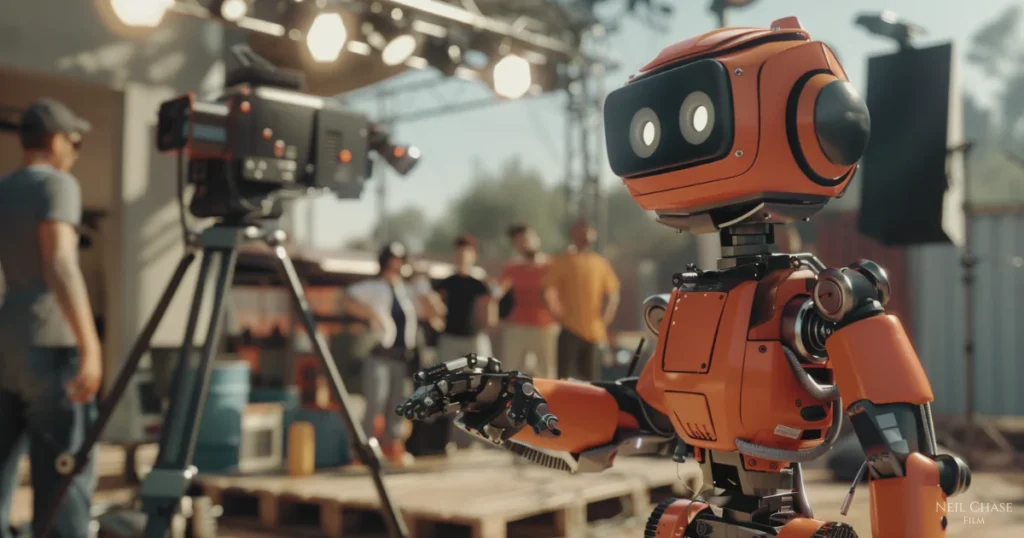
AI also optimizes marketing strategies by predicting box office performance and identifying target demographics. Tools like SocialBakers and Hootsuite Insights analyze social media trends, enabling studios to create effective promotional campaigns. Furthermore, AI-generated trailers and posters are becoming increasingly common, offering a cost-effective and time-efficient alternative to traditional methods.
Ethical Considerations and Challenges
While AI presents numerous benefits, its integration into filmmaking raises ethical and creative concerns. The use of AI-generated characters and scripts sparks debates about intellectual property and authorship. Additionally, the potential for AI to replace human jobs in areas like editing and visual effects has led to apprehension within the industry.
There’s also the question of authenticity. As AI-generated content becomes more prevalent, audiences may struggle to distinguish between genuine human artistry and machine-created works. Maintaining a balance between technological advancement and preserving the essence of storytelling remains a critical challenge for Hollywood.
The Future of AI in Filmmaking
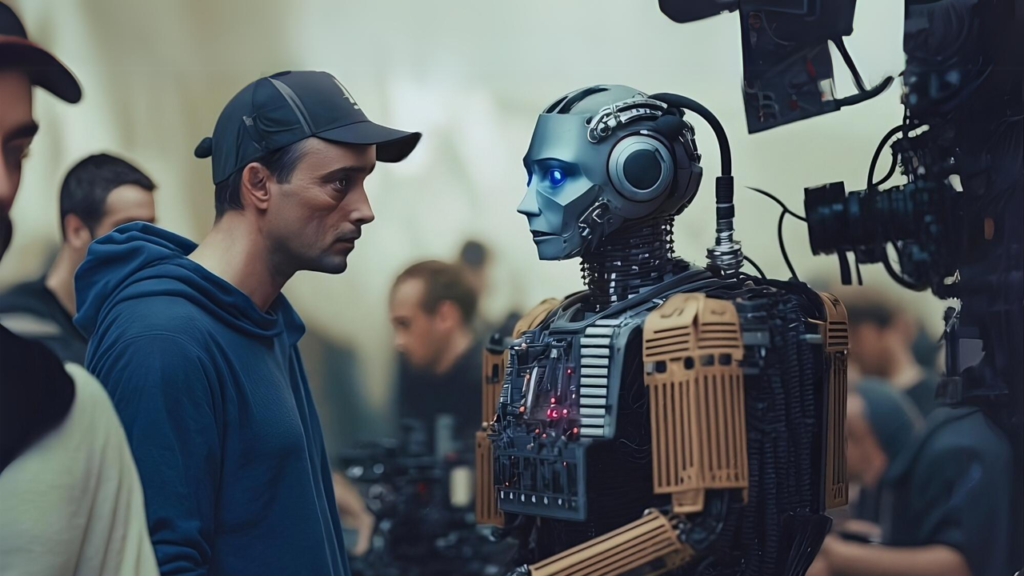
The role of AI in filmmaking is only expected to grow. As technology continues to evolve, we may witness the creation of entirely AI-directed films, where algorithms handle everything from scriptwriting to editing. Virtual production, powered by AI and real-time rendering, is already gaining traction, with projects like The Mandalorian showcasing its potential.
Moreover, AI could democratize filmmaking by making advanced tools accessible to independent creators and small studios. This could lead to a surge in diverse and innovative content, reshaping Hollywood’s creative landscape.
The Best Rom-Coms Coming in 2025: Love, Laughter, and Happy Endings!
Conclusion
AI is undeniably changing the way films are made, pushing the boundaries of creativity and efficiency. While challenges remain, the potential benefits of this technology far outweigh its drawbacks. By embracing AI, Hollywood can continue to evolve and captivate audiences worldwide with groundbreaking stories and visuals. As we move forward, the partnership between human creativity and artificial intelligence promises to usher in a new era of cinematic excellence.

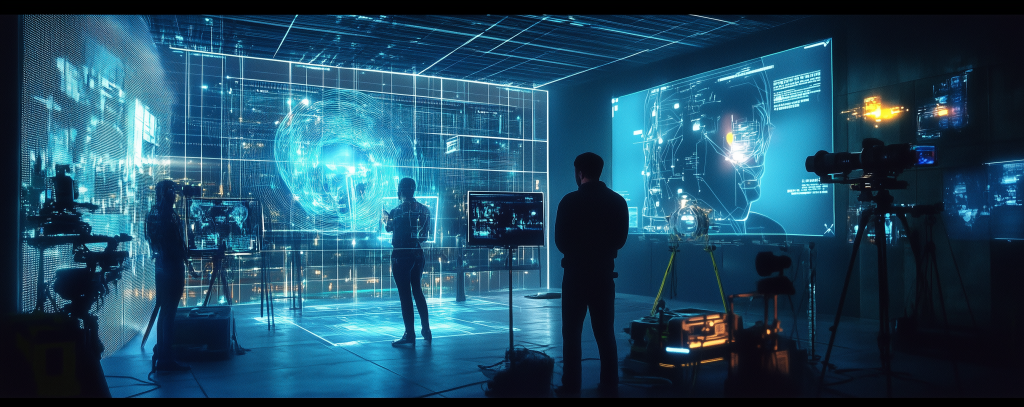
1 thought on “AI in Filmmaking: How Technology Is Changing Hollywood!”